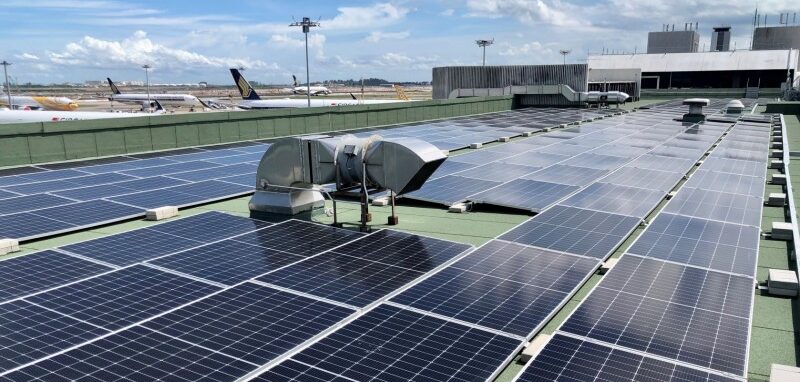Travel services provider dnata will invest US$100m in green operations in the next two years to enhance environmental efficiency across its network.
The company’s ongoing investment in infrastructure, equipment and process improvement will help the company achieve its strategic objectives and reduce its carbon footprint by 20% by 2024, and by 50% by 2030. In recent years, dnata has invested in technologies to optimize resources and improve operational efficiency across its facilities. It installed renewable energy features, such as solar panels, heat recovery units and electric vehicle charging at its existing facilities in the UK, Singapore and Ireland. The company will also incorporate carbon reduction initiatives in the construction and operation of its recently announced new cargo centers in the Netherlands and Iraq.
dnata has increased investments in electric and hybrid ramp, ground support (GSE) and forklift equipment, and refurbished existing GSE with new technologies to further decrease emissions and update them to the latest safety and quality standards. As a result, dnata became the first ground handler to successfully complete green aircraft turnarounds using only zero-emission GSE in the USA and UAE.
dnata’s catering team has invested in process improvement to minimize its environmental footprint. It has been working closely with many of its airline customers to analyze consumption trends and use predictive data to optimize the loading of food and beverage for in-flight catering. Analysis of onboard data is intended to not only reduce food waste but also fuel burn associated with carrying excess weight. In addition, where possible, dnata catering sources and supplies local produce to reduce the food miles associated with menus.
The company has also taken initiatives to conserve water consumption and recycle materials, such as paper, plastic, cardboard, wood, glass, metal, used cooking and mineral oils. Earlier this year, dnata committed to reducing its waste to landfill by 20% by 2024.
dnata travel group in the UK has invested in green technologies and introduced new business practices to improve environmental efficiency. It switched to renewable energy to take all electricity from green sources at all its offices, cut out single-use plastic (SUP) from its operations, reduced paper consumption by 4 million pages annually through its ‘paperless office’ initiative, and implemented a zero to landfill policy to ensure that all non-recyclable waste is sent to energy recovery facilities for processing. Furthermore, it replaced 80% of its fleet with electric or hybrid cars with a target to operate a fully green fleet by 2024.
Steve Allen, CEO of dnata group, said, “We’ve been making great progress on reducing our carbon footprint, minimizing waste and reducing energy and water consumption across our operations. We will further increase our investments and efforts in strong cooperation with our partners to achieve our targets and preserve the environment for current and future generations.”
dnata has embedded its environmental framework across its travel businesses, aiming to empower customers to make better travel choices. Its corporate services include hybrid event solutions, sustainable travel policy guidance as well as carbon emission monitoring and reporting, aligned to global standards.

